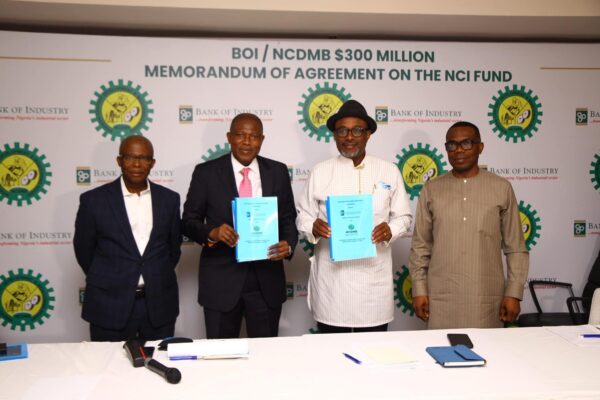Breaking News
Tax Incentive – Increased investment in Research and Development leads to higher productivity and profitability – NCDMB
He also discussed the importance of tax incentives in attracting investments, stimulating economic growth, encouraging compliance, and supporting small businesses. Nami highlighted the need for tax incentives to be designed and implemented in a fair, transparent, and sustainable manner, and the potential of research and development (R&D) to drive innovation, job creation, and economic growth.

The Executive Secretary of the Nigerian Content Development and Monitoring Board, Engr. Simbi Wabote has stressed the importance of collaboration between his board and the Federal Inland Revenue Service (FIRS) to develop local technology and increase tax collection revenue for the government.
Speaking on Tuesday a at a tax awareness workshop for stakeholders focused on oil and gas suppliers, Wabote emphasized that NCDMB and FIRS have complementary mandates, with NCDMB responsible for promoting local content in the oil and gas industry and FIRS for collecting taxes.
He urged FIRS to provide insights on the incentives available for companies that invest in research and development to benefit from tax credits.
It is instructive that the two government agencies have seen the need to forge a strong collaboration to drive the government’s aspiration to develop local technology with a consequential impact on increasing government revenue from the tax.
“To do this, I will implore all of us to dedicate our energy to the following three things. Firstly, we need to sustain inter-agency collaboration.
“Secondly, we need to forge strong alliances and partnerships across the borders of government agencies to the private sector.
“We have high hopes that this workshop will rectify gross underfunding of research in Nigeria which is currently estimated at less than 0.2% of the national budget.
“It is our expectation that through the awareness that will be created from this workshop, the private sector will reverse the trend.
“Now is the time to act and implement all the great ideas and opportunities on the table. This must not just be another talk shop. We must join hands together to bring our initiatives into reality. He advised.
FIRS chairman Muhammad Nami represented by his senior special assistant Gabriel Ogunjemilusi highlighted that taxation is an essential source of revenue for the Nigerian economy and plays a crucial role in financing government activities.
He emphasized the significance of taxation as a source of revenue for the Nigerian economy, and the need to increase the country’s tax-to-GDP ratio from its current rate of 5.5%-6.1% to the target of 15% by 2023.
He also discussed the importance of tax incentives in attracting investments, stimulating economic growth, encouraging compliance, and supporting small businesses. Nami highlighted the need for tax incentives to be designed and implemented in a fair, transparent, and sustainable manner, and the potential of research and development (R&D) to drive innovation, job creation, and economic growth.
He outlined several tax incentives available in Nigeria to encourage R&D activities, including allowable deductions of up to 10% of reserves, capital allowances on plant and machinery used for R&D activities, and tax credits of up to 20% of the cost of qualifying expenditures and FIRS will continue to support companies in Nigeria to take advantage of available fiscal incentives provided by the Nigerian tax laws.









